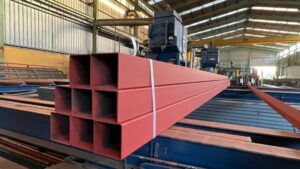
ArcelorMittal has called for the EU to introduce a carbon border adjustment (CBA). The new system should be included in the €1 trillion ($1.11 trillion) “Green Deal,” aimed at making the bloc carbon neutral by 2050.
The company believes the CBA “…will help to create the market conditions and protections needed for companies to make investments and transition to carbon neutrality without disruption.”
A CBA would add to non-EU-origin steel imports into the bloc the cost that European producers pay under the Emissions Trading System (ETS). “This would equalise the cost of carbon for every producer to create a fair market and, crucially, encourage investment in lower-emissions steel production,” ArcelorMittal says in a note sent to Kallanish.
The company notes that a CBA could be imposed in different ways, “…as long as it neutralizes the disparities in carbon costs between domestic products and imports, and incentivizes the transition to low-carbon steel production.” The company believes, for example, that it should initially be applied to primary goods, rather than end products like household appliances and everyday tools.
Proceeds from the CBA would then be used by European authorities to invest further into new technologies reducing carbon footprint, further supporting the process, ArcelorMittal concludes.
“There are of course challenges that will need to be overcome,” the steelmaker continues. “For example, some have argued that there is the risk of contravening international trade rules. However, the establishment of a border adjustment is compatible with international trade rules, allowing members to adopt measures necessary for the protection of the environment or relating to the conservation of natural resources providing that such measures do not constitute arbitrary discrimination between countries where the same conditions prevail.”
This will, however, only work if the policies are well-designed and drafted in the right way, according to ArcelorMittal Europe – Flat Products chief executive and Eurofer head Geert Van Poelvoorde.




